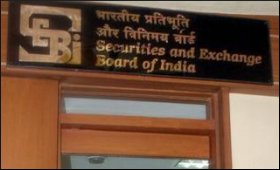|
|
|

|
SC's action may clear way for electricity futures in India
|
|

|
|
| Top Stories |
 |
|
|
|
SME Times News Bureau | 02 Jul, 2020
After years of delays, India may soon open a derivatives market for the
power sector allowing both power generators and consumers to enter into
futures contracts and use it as a new hedging tool to mitigate price
volatility and other associated risks.
Introduction of pure play
futures and options as products on power trading platforms would be a
major reform initiative that would help in developing a robust and
vibrant energy market. The introduction of the derivative products has
got delayed over jurisdictional issues between market regulator SEBI and
power regulator CERC.
Sources privy to the development told IANS
that Securities and Exchange Board of India (SEBI) and Central
Electricity Regulatory Commission (CERC) have now reached an
understanding to allow futures trading in electricity.
The former
is expected to oversee the functioning of all financially traded
electricity forwards while the latter would regulate physically settled
forward where electricity is delivered on future date at the contracted
price.
"Decks have been cleared for the start of the electricity
futures market in India with regulators reaching broad understanding on
how to go about while allowing derivative instruments for market
participants. They will still have to get concurrence of the Supreme
Court that was overseeing the issue of electricity futures jurisdiction
between SEBI and CERC," said an official source.
"The order on
ending the case based on applications given by the two regulators got
delayed due to Covid-19 related disruptions. It is expected anytime this
month now. So the futures market could become reality this year
itself," the source added.
Even after clarity on regulations,
there may be further delays on account of the lockdown and economic
slowdown that has also impacted power demand. Futures and options work
best in a rising market where players need to hedge their positions to
minimize losses.
While India presents a large power market with
installed generation capacity of close to 370 GW and large number of
participants from both private and public sector, it is yet to offer
futures trading option that is the hallmark of all mature markets.
Though
electricity is available in surplus now, its trading is limited and
only through spot contracts (up to 11 days) on exchanges. Forward
trading in electricity started in 2009, but the matter soon ended in
court over jurisdictional issues.
"With clarity on regulations,
electricity futures may soon start in the country. For any mature
market, future and options are a must. This should not be seen as
instruments facilitating speculation but the one that promotes hedging
and allows price discovery in medium term markets with mitigation of
counterparty risk," said Rohit Bajaj, head (business development) of
IEX. IEX is the largest power trader in the country.
Once future
trading is started, power exchanges such India Energy Exchange (IEX)
would be in a position to offer derivative instruments to participants.
This could be electricity futures with a clear delivery based schedule
(delivery at a price on future date) and other derivative instruments
such as call and put options. This will help both generators and
consumers to mitigate risks by hedging their positions through
derivative instruments.
Start of derivative instruments would
also be helpful for the sector at a time when spot power prices have
fallen on exchanges due to slowdown and the demand for electricity has
also come down. Futures market will provide such indications in advance.
Power
producers can sell their perceived surplus in futures and consumers,
who foresee higher consumption and a price rise, can buy power on the
same platform.
Trading in electricity futures will also be
helpful as power prices are volatile. Those who buy or sell power in the
spot market will benefit directly from this. That apart, dealings via
an exchange would be safe as its clearing house provides a system of
guarantee that mitigates counterparty credit risk.
There is
still, however, some fear that these products would concentrate the
commodity with a handful of players, who could then control prices. But
with low demand and a surplus situation now, this looks unlikely.
|
|
|
| |
|
|
|
|
|
|
|
|
|
|
|
|
|
|
| |
| Customs Exchange Rates |
| Currency |
Import |
Export |
US Dollar
|
66.20
|
64.50 |
UK Pound
|
87.50
|
84.65 |
Euro
|
78.25
|
75.65 |
| Japanese
Yen |
58.85 |
56.85 |
| As on 13 Aug, 2022 |
|
|
| Daily Poll |
 |
 |
| PM Modi's recent US visit to redefine India-US bilateral relations |
|
|
|
|
|
| Commented Stories |
 |
|
|
|
|
|
| |
|